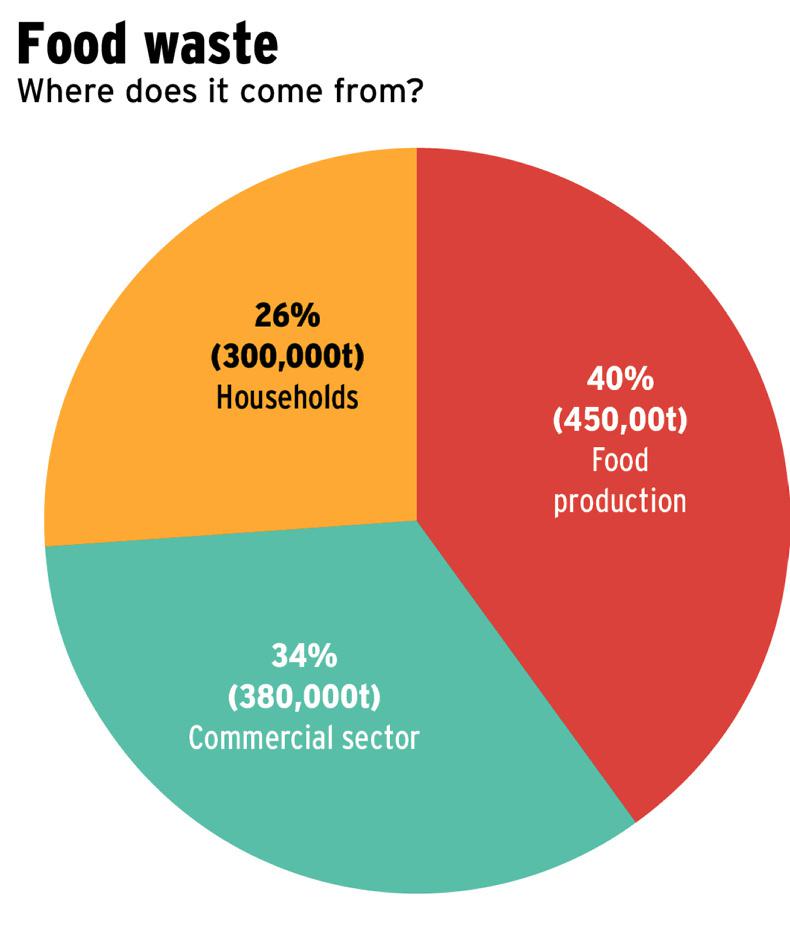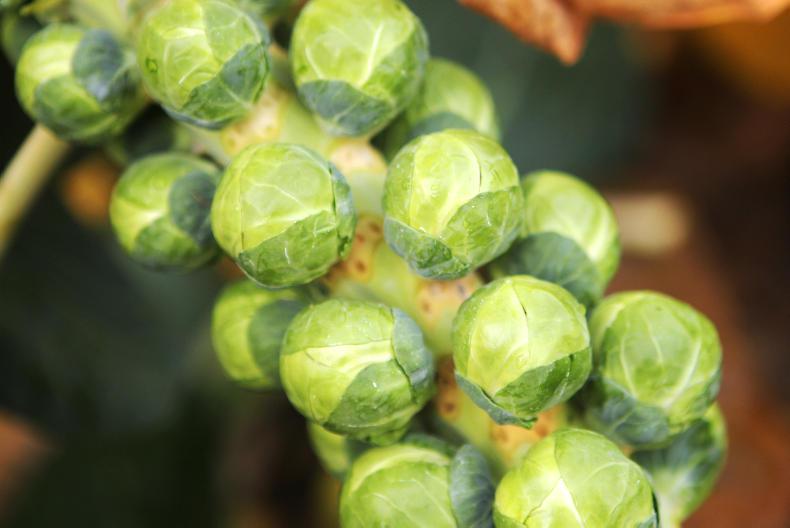An estimated 450,000 tonnes (t) of food waste is produced in Ireland every year before it reaches the consumer. The Minister for Communications, Climate Action and Environment Denis Naughten said that out of the 1.1m t of food waste produced in Ireland each year 40% comes from food production, 34% from the commercial sector and 26% from households.

There are two sets of EU regulations in place that set out clear obligations on waste collectors, businesses and households to promote the segregation and recovery of food waste. The regulations also aim to support job creation in the waste and bio-energy sectors by using waste produce energy, compost and digestate.
“Through preventing food waste, and becoming more efficient in using what we have, Ireland can reduce the environmental impacts associated with food waste, improve the financial performance of businesses and householders alike, and help those who struggle to put food on the table,” Naughten said in response to a parliamentary question from Roisin Shortall.
The national prevention programme “Stop Food Waste” aims to raise awareness and enable initiatives to promote changes in behaviour, through a combination of education, training, local champions, peer example and easy-to-use information. It is targeted at householders and individuals, and small businesses such as cafés, pubs serving food and small local supermarkets.
Re-use
Where preventing food waste isn’t possible, Government policy encourages re use such as donating surplus food.
“Ireland is already making significant strides in this area and through the EPA-led National Waste Prevention Programme (NWPP), has been working on food waste prevention in partnership with many stakeholders since 2009,” Naughten said. “A National Forum on Food Waste is scheduled for March 2017 to bring together stakeholders from across the food cycle with the specific focus of exploring a collaborative approach to reducing waste food.”
Read more
France passes law to combat food waste
An estimated 450,000 tonnes (t) of food waste is produced in Ireland every year before it reaches the consumer. The Minister for Communications, Climate Action and Environment Denis Naughten said that out of the 1.1m t of food waste produced in Ireland each year 40% comes from food production, 34% from the commercial sector and 26% from households.

There are two sets of EU regulations in place that set out clear obligations on waste collectors, businesses and households to promote the segregation and recovery of food waste. The regulations also aim to support job creation in the waste and bio-energy sectors by using waste produce energy, compost and digestate.
“Through preventing food waste, and becoming more efficient in using what we have, Ireland can reduce the environmental impacts associated with food waste, improve the financial performance of businesses and householders alike, and help those who struggle to put food on the table,” Naughten said in response to a parliamentary question from Roisin Shortall.
The national prevention programme “Stop Food Waste” aims to raise awareness and enable initiatives to promote changes in behaviour, through a combination of education, training, local champions, peer example and easy-to-use information. It is targeted at householders and individuals, and small businesses such as cafés, pubs serving food and small local supermarkets.
Re-use
Where preventing food waste isn’t possible, Government policy encourages re use such as donating surplus food.
“Ireland is already making significant strides in this area and through the EPA-led National Waste Prevention Programme (NWPP), has been working on food waste prevention in partnership with many stakeholders since 2009,” Naughten said. “A National Forum on Food Waste is scheduled for March 2017 to bring together stakeholders from across the food cycle with the specific focus of exploring a collaborative approach to reducing waste food.”
Read more
France passes law to combat food waste







 This is a subscriber-only article
This is a subscriber-only article










SHARING OPTIONS: